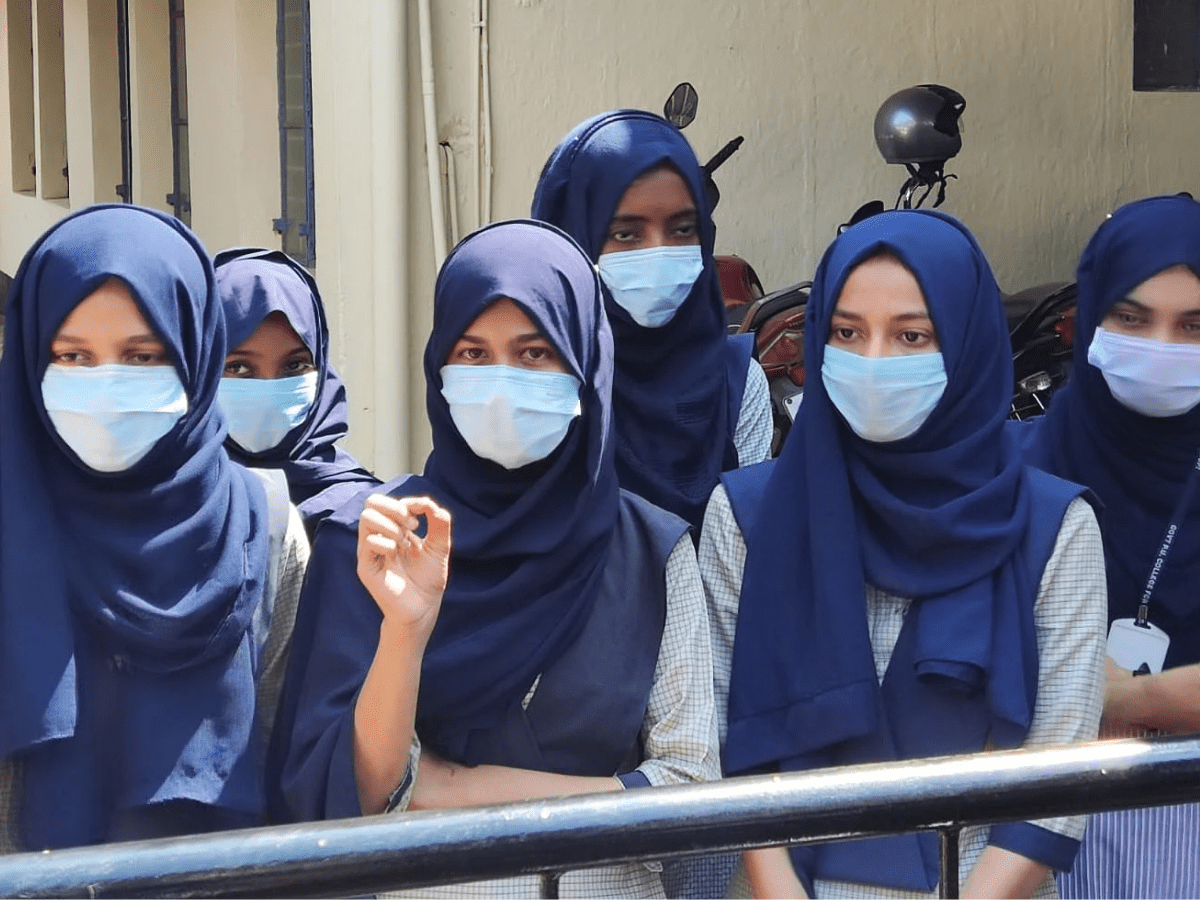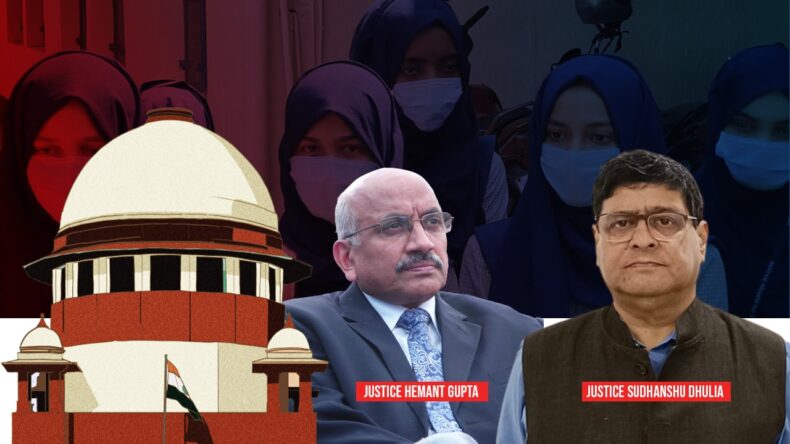
The state’s attorneys had argued that the Karnataka government judgment that caused the controversy was religiously neutral.
Two Supreme Court judges differed on a verdict today, on whether the hijab ban should be continued in schools in Karnataka or not.
Further, also demanded that the issue be heard by a larger bench. While Justice Hemant Gupta backed the hijab ban, Justice Sudhanshu Dhulia stated that he “respectfully disagreed” with Justice Hemant Gupta’s support for the hijab ban because he valued girls’ education more.
Justice Dhulia on Hijab Ban
Secularism, constitutional freedoms, and promoting girls’ education were among the major points made by Justice Dhulia. The judge commented that one of the many features of our Constitution is trust. He added that the faith that the minority has placed in the majority and commented that a document of trust is our constitution as well.
At the hearing, Justice Dhulia said that it is necessary to have discipline in schools, but not at the cost of freedom or dignity. Asking a pre-university schoolgirl to take off her hijab at the school gate is an invasion of her privacy and dignity.
Justice Dhulia pointed out that a girl has a considerably harder time getting an education than her brother.
He observed that a girl kid in India had to complete household duties in many areas before attending school. He asked if the hijab ban is improving her life in any way.
He added a conclusion, saying that in the end, it comes down to personal preferences.
Interrogating the court, he asked if in a democracy it is too much to ask for a hijab and if it violates morality, public order, or health.

Justice Hemant Gupta on Hijab Ban
While Justice Hemant Gupta presented a different viewpoint. According to him, as secularism applies to all people, allowing one community to wear religious symbols would be “antithetical to secularism.” He remarked that if students were permitted to bring religious symbols to class, the fraternity’s constitutional mission would be thwarted.
All students are allowed to apply to state-run schools, regardless of their religion, race, caste, or language, Gupta added. In fact, the Act requires that students be admitted without limitations based on such factors. But when it comes to uniforms, the students are required to abide by the school rules in the matter of uniforms.
This religious ideology cannot be practised at a public, secular school. The choice to wear a hijab or any other mark, such as a tilak, that can be used to identify someone holding a particular religious belief is up to the students, but the state has the right to prohibit the use of apparent religious symbols in schools that are supported by public funds, according to him.
Queries Of Justice Hemant Gupta
In the support of his decision, he also produced 11 queries, including the following:
- Whether a Constitution bench should hear this appeal
- Whether colleges have the authority to determine what students should wear
- Whether banning the hijab goes against the right to freedom of religion (Article 25)
- Whether Article 25 and Article 19 (Freedom of expression) conflict with each other
- Whether fundamental rights are violated by the Karnataka ban
- Whether the headscarf is a requirement for practising Islam
- Whether the government’s directive promotes education access
With that, Justice Gupta remarked that he had rejected the appeal with a conclusion. According to him, the answer works against the appellant.
The Karnataka government’s prohibition on the headscarf on college campuses has been challenged by Muslim students. The ban order dated February 5, referred to attire that undermines equality, integrity, and public order in schools and universities and contrasted hijabs with Sikh turbans and Hindu bindis.
On March 15, the Karnataka High Court declined to lift the ban. The High Court order was questioned by the students before the Supreme Court.












